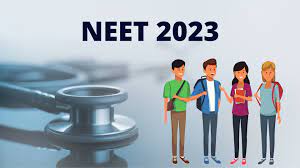The challenges facing our planet – climate change, biodiversity loss, resource depletion – demand a new generation equipped with the knowledge, skills, and values to build a more sustainable future. Environmental education (EE) emerges as a critical tool in this endeavor. By fostering environmental awareness, promoting sustainable practices, and equipping communities with climate change mitigation strategies, EE plays a vital role in shaping a more responsible and environmentally conscious society.
Cultivating Environmental Awareness: The Seed of Change
The foundation of environmental action lies in awareness. EE programs introduce students and communities to the intricate relationships within our ecosystems, the impact of human activities, and the delicate balance that sustains life on Earth. This understanding fosters a sense of connection to the environment, shifting the perception from a resource to be exploited to a precious system to be protected.
Learning about local environmental issues is particularly impactful. Field trips, for example, can bring the classroom to life, allowing students to witness firsthand the beauty and fragility of nature. Studying local water sources, exploring forests, or visiting recycling facilities provides tangible connections to environmental concerns.
EE also plays a crucial role in demystifying complex environmental issues like climate change. By explaining the science behind climate change and its potential consequences, EE empowers individuals to understand the urgency for action.
Empowering Sustainable Practices: From Knowledge to Action
Awareness is only the first step. EE programs go beyond simply informing individuals by equipping them with the skills and knowledge to translate environmental consciousness into concrete actions. This includes:
- Sustainable living practices: Programs can teach students and communities about composting, reducing waste, conserving energy and water, and making responsible consumption choices.
- Environmental stewardship: EE can foster a sense of responsibility for the environment by encouraging activities like tree planting, community clean-ups, or citizen science projects.
- Critical thinking and problem-solving skills: By discussing environmental challenges and exploring potential solutions, EE equips individuals with the ability to analyze complex issues and identify sustainable solutions.
Building Resilience: Climate Change Mitigation Strategies
The specter of climate change looms large. EE programs play a vital role in preparing communities for its impacts. This includes:
- Climate literacy: Providing students with a comprehensive understanding of climate change science, its causes, and potential effects allows them to make informed choices as individuals and advocate for climate action within their communities.
- Adaptation strategies: EE programs can help communities identify vulnerabilities to climate change, such as increased flooding or extreme weather events, and explore ways to adapt and build resilience.
- Disaster preparedness: Educating individuals on disaster preparedness measures, like emergency evacuation plans and first-aid training, allows communities to respond effectively to climate-related disasters.
Effective Environmental Education: Beyond the Classroom Walls
Environmental education is not confined to the classroom. Effective programs take a multi-pronged approach, engaging learners of all ages through diverse channels:
- Formal education: Integrating environmental topics across the curriculum, from science and geography to social studies and language arts, fosters a holistic understanding of environmental issues.
- Informal education: Nature centers, museums, and environmental organizations offer interactive learning experiences, workshops, and public outreach programs that supplement formal education.
- Community involvement: Community gardens, farmers markets, and environmental stewardship programs provide opportunities for hands-on learning and community engagement.
- Media and technology: Educational documentaries, interactive online resources, and mobile apps can be powerful tools for disseminating environmental information and promoting sustainable practices.
The Benefits of a Sustainable Future
Investing in environmental education yields benefits that extend far beyond environmental protection. By fostering a culture of sustainability, EE:
- Promotes public health: By encouraging clean air, water, and healthy ecosystems, sustainable practices directly impact public health.
- Boosts economic prosperity: A sustainable future fosters innovation in renewable energy, green technologies, and resource efficiency, leading to new job opportunities and economic growth.
- Strengthens social cohesion: Working towards a common goal of environmental protection fosters community spirit and strengthens social bonds.
The Path Forward: Integrating Environmental Education
Building a sustainable future requires a global commitment to environmental education. This necessitates:
- Policy and curriculum development: Government policies and curricula should prioritize environmental education across all educational levels.
- Teacher training: Equipping teachers with the knowledge, skills, and resources to effectively integrate environmental education into their teaching is crucial.
- Stakeholder engagement: Collaboration between educators, environmental organizations, community leaders, and policymakers is essential for developing targeted and impactful environmental education programs.
Conclusion
Environmental education is not merely a subject, but a call to action. By fostering environmental awareness, equipping individuals with the skills for sustainable living, and promoting climate change mitigation strategies, EE empowers individuals and communities to take responsibility for the future of our planet. From classrooms to communities, environmental education.



